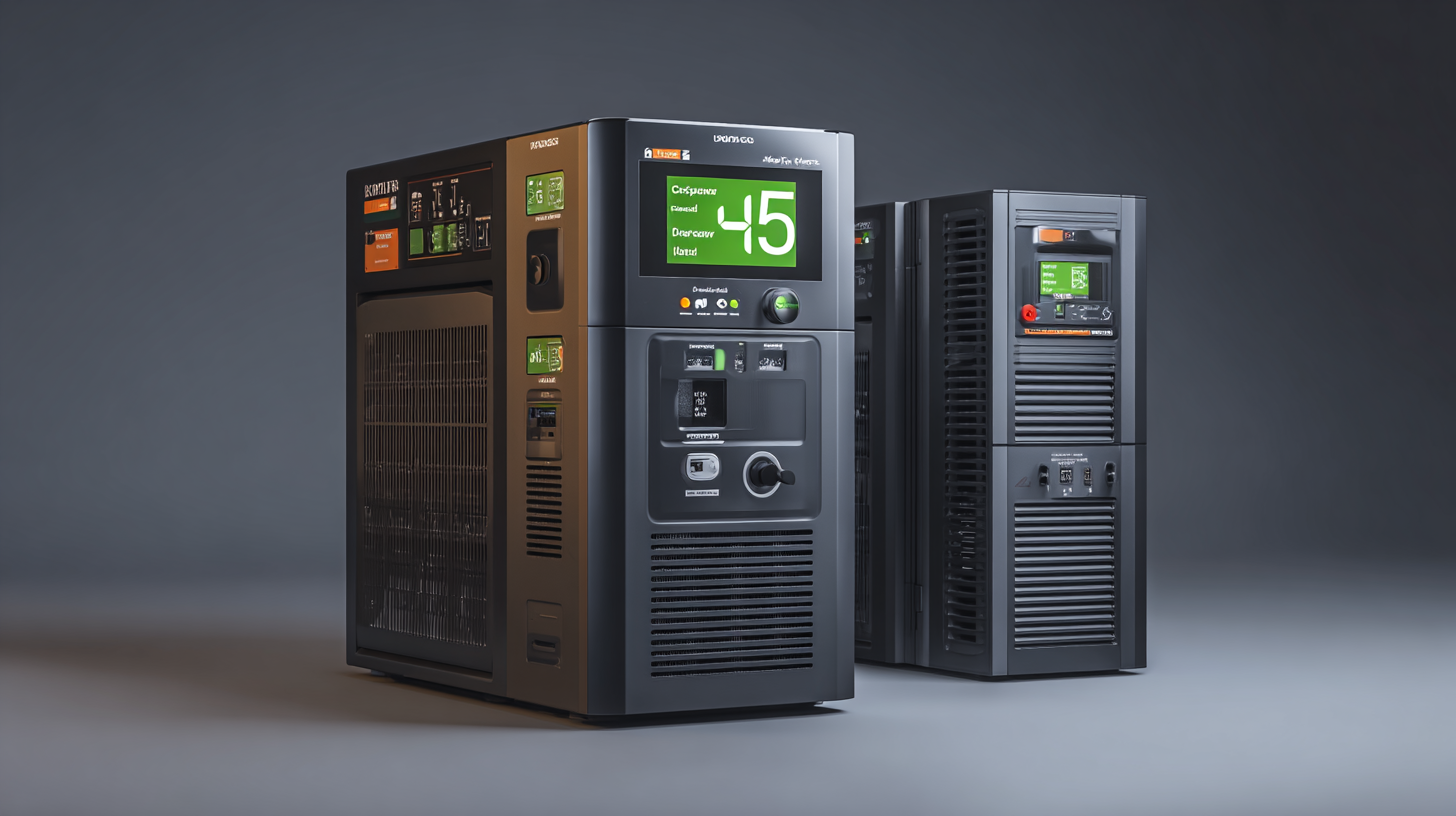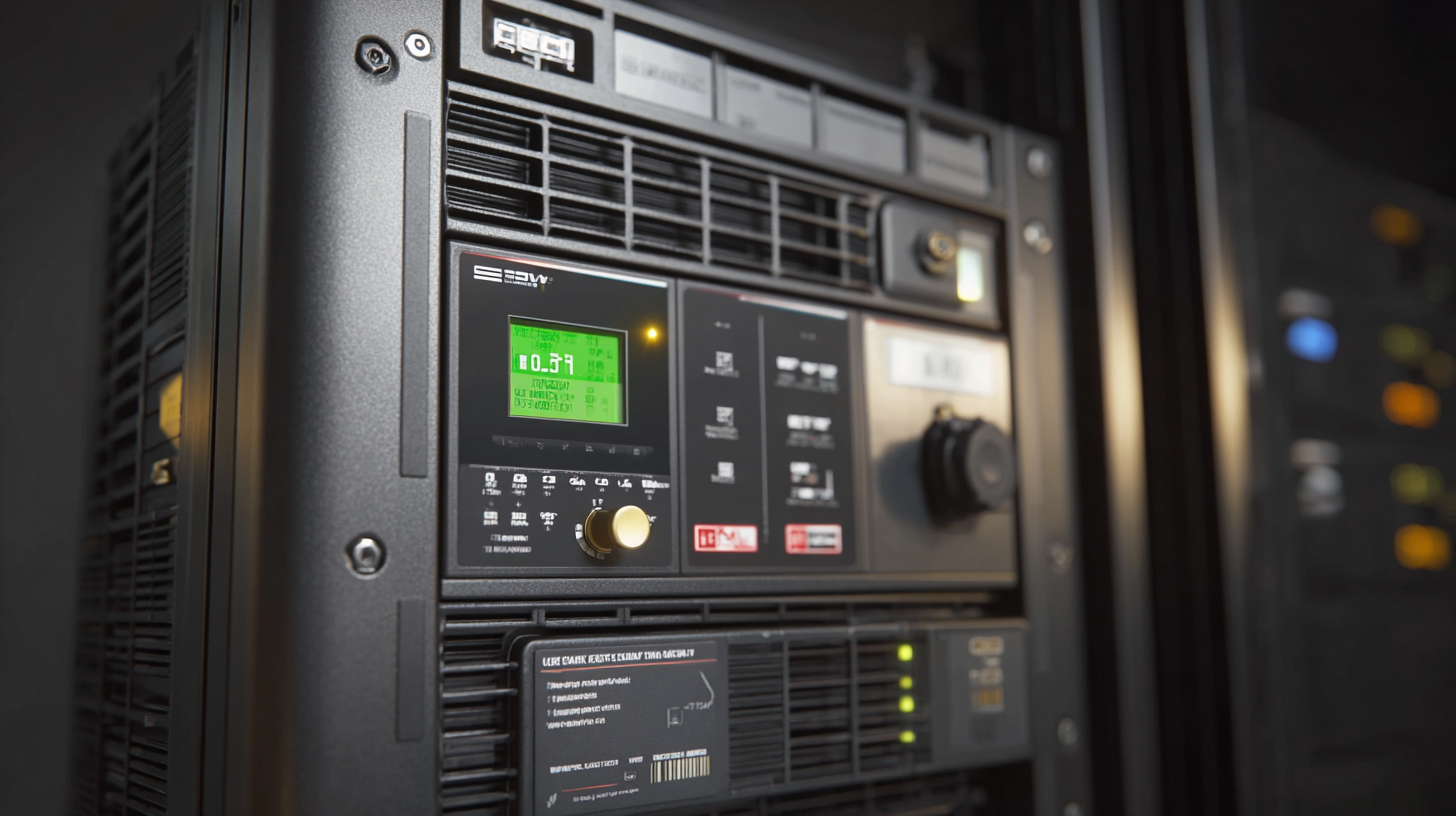5 Compelling Reasons to Choose the Best Uninterruptible Power Supply for Your Business Needs
In today's fast-paced business environment, ensuring uninterrupted power supply is crucial for maintaining operational efficiency and protecting valuable data. An Uninterruptible Power Supply (UPS) serves as a vital safeguard against unexpected power outages, voltage fluctuations, and other electrical disturbances that can disrupt workflows and lead to significant losses. This blog will delve into five compelling reasons why choosing the best Uninterruptible Power Supply for your business needs is not just a smart investment, but a necessary strategy for resilience.

From safeguarding critical equipment to enhancing system reliability and minimizing downtime, a high-quality UPS can provide peace of mind and keep your business running smoothly, even in the face of unforeseen challenges. Whether you are a small business owner or managing a large enterprise, understanding the advantages of the right UPS can make all the difference in your operational continuity and overall success.
Types of Uninterruptible Power Supplies: Finding the Right Fit for Your Business
When selecting an uninterruptible power supply (UPS) for your business, it’s crucial to understand the different types available and how they align with your specific needs. The three primary types of UPS systems—standby, line-interactive, and online—offer varying levels of power protection.
 Standby UPS units provide basic protection during brief outages, making them suitable for home offices or small businesses. In contrast, line-interactive models offer enhanced voltage regulation, ideal for environments with frequent, minor fluctuations. For businesses requiring the highest level of power quality and reliability, online UPS systems deliver seamless protection against all power disturbances.
Standby UPS units provide basic protection during brief outages, making them suitable for home offices or small businesses. In contrast, line-interactive models offer enhanced voltage regulation, ideal for environments with frequent, minor fluctuations. For businesses requiring the highest level of power quality and reliability, online UPS systems deliver seamless protection against all power disturbances.
When evaluating your options, consider your power consumption and critical equipment needs. According to a recent report from the International Data Corporation (IDC), businesses lose an average of $100,000 for every hour of downtime. This underscores the importance of investing in the right UPS. For those in data-sensitive industries, a recent survey by the Ponemon Institute found that 70% of data breaches are linked to inadequate power management. Therefore, it’s essential to choose a UPS with sufficient capacity and backup time to safeguard your operations.
Tip: Always calculate the total wattage of the devices connected to your UPS and select a unit that exceeds this to ensure it can handle unexpected surges. Additionally, regular maintenance checks on your UPS can ensure longevity and reliability of your power supply systems.
Understanding Online, Offline, and Line-Interactive UPS Systems
When selecting the right Uninterruptible Power Supply (UPS) for your business, understanding the different types of systems available is essential. Online, offline, and line-interactive UPS systems each have distinct functionalities that cater to various operational needs. Online UPS systems provide the highest level of power protection by continuously converting incoming AC power into DC and then back to AC. This ensures a steady and clean power supply, making it ideal for sensitive equipment in data centers or critical applications.
Offline UPS systems, on the other hand, operate by supplying the connected equipment directly with AC power during normal conditions and switching to battery power only when a power outage occurs. This type is typically more cost-effective and suitable for smaller businesses that require basic protection. Line-interactive UPS systems bridge the gap between online and offline models. They offer added features like voltage regulation, making them versatile and efficient for various applications.
Tip: Assess your equipment's sensitivity and power requirements before choosing a UPS system. For mission-critical devices, investing in an online UPS can provide peace of mind. Conversely, for less sensitive operations, an offline or line-interactive system may be sufficient and help you save on costs. Always consider scalability, as your future power needs may change.

Key Features to Consider When Choosing an Uninterruptible Power Supply
When selecting an uninterruptible power supply (UPS) for your business, there are several key features to consider that can significantly impact your operations. Firstly, the capacity of the UPS is crucial; it should be able to handle the total load of all connected equipment. An adequately sized unit ensures that during a power outage, all critical systems remain operational, thereby preventing data loss and equipment damage.
Another important feature is the type of battery technology used. Modern UPS systems often employ either sealed lead-acid or lithium-ion batteries. Lithium-ion options tend to have a longer lifespan and faster recharge times, which can translate into lower maintenance costs and higher operational efficiency. Additionally, look for smart features such as a user-friendly interface, monitoring software, and connectivity options. These elements not only allow for easier management but also enable real-time monitoring, helping you to foresee potential issues before they escalate into serious problems.
Power Capacity Comparison of Uninterruptible Power Supplies (UPS)
Assessing Power Capacity and Runtime for Diverse Business Needs
When selecting an uninterruptible power supply (UPS) for your business, understanding power capacity and runtime is crucial. Every business has unique energy requirements based on its operations, and assessing these needs can help you avoid costly downtimes and protect sensitive equipment. According to a report by MarketsandMarkets, the global UPS market is expected to grow from USD 8.4 billion in 2021 to USD 13.6 billion by 2026, highlighting the increasing reliance on reliable power solutions across industries.
When evaluating power capacity, consider the total wattage of your devices. A general rule of thumb is to choose a UPS that offers at least 20-25% more capacity than your total load. This allows for future expansions and ensures that your UPS isn’t operating at full capacity, which can reduce its lifespan.
Tip: Regularly assess your power needs and upgrade your UPS accordingly. As your business grows, so do your power requirements. In terms of runtime, consider how long your UPS can sustain operations during a power outage. For critical systems, a UPS with at least 30 minutes of backup time is advisable to ensure a safe shutdown, as indicated by a comprehensive survey by Data Center Knowledge.
Tip: Always opt for UPS systems with battery management technology that enhances runtime and lifespan, helping you maximize your investment. Understanding these elements can significantly impact your business continuity and overall productivity.
Evaluating Cost vs. Benefits of Different UPS Solutions for Your Operations
When evaluating the cost versus benefits of different uninterruptible power supply (UPS) solutions for your business, it’s essential to consider both immediate and long-term impacts. A higher upfront investment in a reliable UPS can significantly reduce downtime during power outages, protecting sensitive equipment and maintaining operational continuity. This not only safeguards your assets but also enhances customer trust and satisfaction, leading to potential increases in revenue.
Moreover, the best UPS solutions offer advanced features such as energy efficiency and smart monitoring capabilities, which can further offset costs over time. By reducing energy consumption and extending the longevity of your equipment through stable power delivery, businesses can realize substantial savings. Conducting a thorough analysis of your operational needs and the potential return on investment will ultimately guide you in choosing the UPS solution that aligns best with your financial and operational goals.

